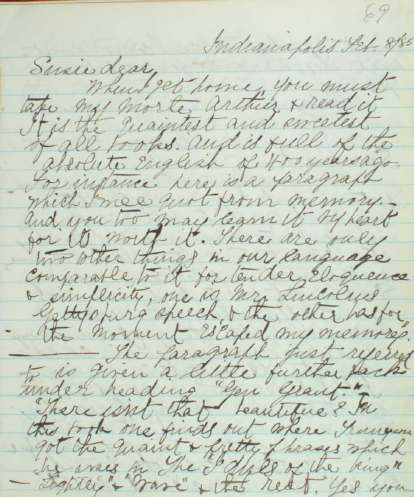When I get home, you must
take my Morte Arthur & read it
It is the quaintest and sweetest
of all books. And is full of the
absolute English of 400 years ago.
For instance here is a paragraph
which I will quot from memory.
And you too may learn it by heart
for its worth it. There are only
two other things in our language
comparable to it for tender eloquence
& simplicity, one is Mr. Lincolns
Gettysburg speech, & the other has for
the moment escaped my memory.
------The paragraph just referred
to is given a little further back
under the heading "Gen. Grant."
"There isnt that beautiful? In
this book one finds out where Tennyson
got the quaint & pretty phrases which
he uses in The "Idols of the king"
-- "Lightly" & "Wave" & the rest. Yes you
[next sheet]
must read it when I come sweetheart.
Kiss mamma for me; and Ben and Jean.
Papa

